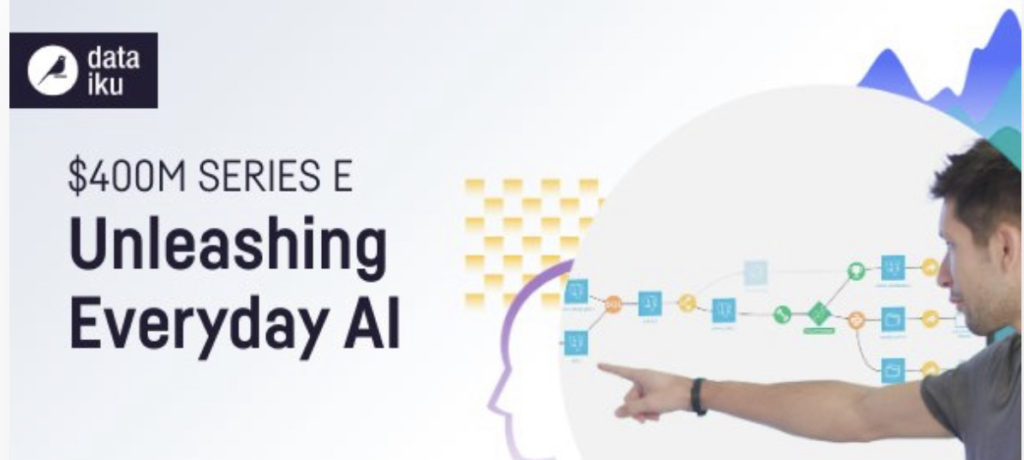
Today, Dataiku is announcing a major new financing – a total of $400m at a $4.6B valuation, led by Tiger Global (which had also invested in the company’s Series D), alongside a great group of existing and new investors.
While financings are ultimately just milestones, this is certainly a testament to the remarkable progress the company has been making towards becoming a major global software player, as it has scaled to hundreds of customers around the world and some 750 employees (and yes, hiring a lot more).
Beyond the headlines and high-fives, what is the story? Here’s a quick industry backgrounder and reminder for anyone new to the company.
A huge part of the data world has been historically focused on business intelligence, with both historical players (Tableau, Microsoft’s Power BI, Google Looker) and newer players (SiSense, Mode, etc.). Business intelligence tools enable you to analyze the past and the present of your business: “which region performed best last quarter?”, “who are our best salespeople?” etc. This is sometimes referred to as descriptive analytics.
Dataiku is a leader in another part of the data world, which different people call different names: data science, enterprise AI (for artificial intelligence), enterprise machine learning. Beyond the semantics, the core idea is to make it possible to asnwer questions about the future of your business, based on the analysis of historical data: “which customers are most likely to buy this product?”, “which customers are most likely to churn?”, “which transaction is most likely to be fraudulent?”, “which region is most likely to show strong demand this month?”. This area is sometimes referred to as predictive analytics.
While this world of predicitive analytics has been around for decades, often under the name “data mining”, with historical players like SAS, it’s experienced tremendous acceleration in the last 5 or 6 years. This was in part propelled by the resurgence of AI, which had experienced fits and starts throughout its history but started demonstrating remarkable efficiency when combined with large volumes of data.
Dataiku was very early in understanding that data science and AI would be a major deal for companies around the world, and started building a platform for it in 2013.
Dataiku was also very early in understanding some very important nuances about the path to success in enterprise AI, in particular:
- while the AI part itself is very “sexy”, deploying AI in the enterprise requires building a much more pedestrian assembly line of products, processes and people. Data needs to be ingested, it needs to be prepared and stored; machine learning models to be built, tested, monitored; and everything needs to be enterprise-grade, deployable in production at scale, secure and compliant. So an enterprise AI platform needs to do a lot of things beyond just the AI part.
- for enterprise AI to be successful, it’s going to “take a village”. While it could have been tempting to focus exclusively on building the most advanced tools for the elite few data scientists, Dataiku made early a fundamental bet around the democratization of AI, by empowering not just data scientists, but also data analysts, data engineers, software developers and business people equally.
Fast forward to today, Dataiku has built a remarkable product (and business) that does all the above and makes it easy for companies to deploy AI in a myriad way – what it calls “Everyday AI“. Deservedly, Dataiku was recognized by Gartner as a Magic Quadrant leader for the last two years.
While it has an impressive roster of Fortune 1000 customers, Dataiku has also just released Dataiku Online, a new, fully-managed cloud version of its platform, accessible to startups and smaller businesses. Check it out!
Congratulations to the team on this Series E, and look forward to the next leg of the journey.